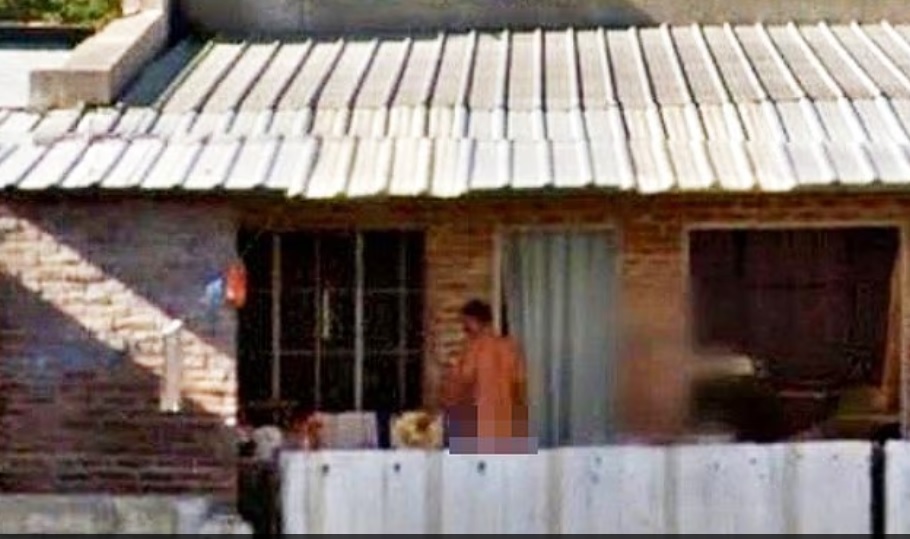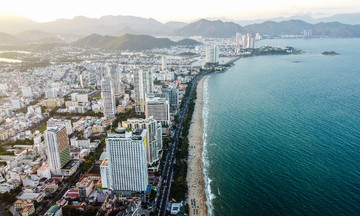The incident occurred in 2015 in Bragado, Buenos Aires. The police officer, who has not been identified, was standing naked in his backyard when a Google street view car captured his image from above.
The photo, clearly showing the man's back and buttocks, was automatically uploaded to Google street view and subsequently made available online to billions of viewers.
A local television station then used the image in a program about unusual sightings on street view, further amplifying its distribution.
The man only learned about the public dissemination of his nude photo after seeing the television program. He reported being mocked by neighbors and only leaving his house for work.
 |
The man's image, made public online. Photo: Google Street View |
The man's image, made public online. Photo: Google Street View
In 2017, he sued Google for invasion of privacy and sought compensation. However, the lawsuit was initially dismissed. Judge Eduardo Caruso argued that the individual in the photo couldn't be identified, as the image was taken from behind, with no face visible, and the location was unclear.
Caruso claimed the man had "placed himself in a situation of exposure" by standing in an area visible from above without being fully covered. "The real victims in this case are the neighbors who had to witness the indecent scene," he stated.
Refusing to accept the ruling, the officer appealed. In 7/2025, the previous judgment was overturned, finding Google responsible for invading his privacy.
"This is a full naked body, not just a small part, and it could have been avoided if Google had applied the appropriate image processing," the ruling noted.
Google Argentina and Google LLC were ordered to pay 2,300 USD, plus interest accrued since 2017, bringing the total to almost 13,000 USD. Google was also required to remove the image from street view and faced a penalty of 78 USD per day for any delay.
The case sets an important precedent in Argentina regarding the limits of image collection in semi-public spaces, as well as the responsibility of global technology platforms for individual privacy.
Nhat Minh (Dailymail/Metro)












